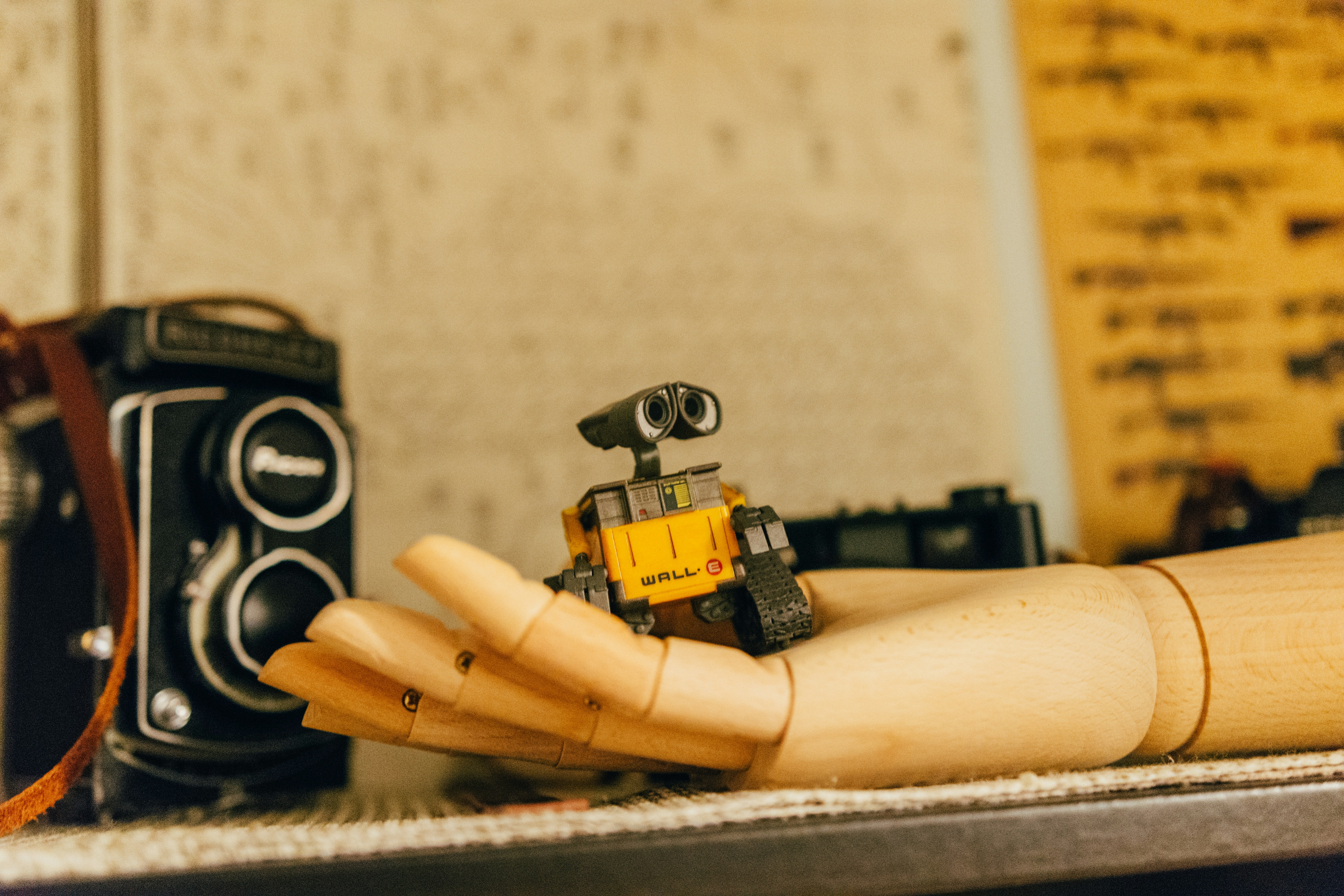AI-Powered Mentorship: Automating Skill Development in Businesses
In today's fast-evolving business landscape, organizations are discovering the immense potential that AI tools and automation bring to skill development. Just like a river flows, constantly carving new paths, so too is the world of mentorship in the workplace transforming under the influence of artificial intelligence (AI). But how does this transformation take shape? Wouldn't it be fascinating to explore how AI-powered mentorship is redefining the essence of learning and growth within businesses? Let’s delve deeper into this captivating topic, discussing practical applications, real-world implications, and how AI is shaping the future of skill development in organizations.
The Importance of AI in Skill Development
Skill development is no longer a one-time event confined to specific training sessions. It requires a continuous and dynamic process where employees constantly adapt to new technologies and market changes. A study from Harvard Business Review reveals that organizations with strong leadership development programs are 30% more likely to outperform their peers. In this context, AI can significantly enhance mentorship through tailored experiences driven by data insights.
How AI Tools Are Empowering Mentorship
AI tools are crafted to enhance employees' learning journeys by personalizing their experiences through data analysis. Consider platforms that enable organizations to track performance and identify skill gaps in real-time. With these insights, organizations can seamlessly connect employees with mentors who possess the expertise needed to nurture the skills necessary for professional growth.
"AI doesn't replace human mentors; it enhances their capabilities.” – Industry Insider
These platforms facilitate a more focused approach to mentorship, allowing for deeper, more engaging exchanges between mentors and mentees. For example, AI-driven platforms can utilize behavioral analytics, a concept discussed in-depth in our article on Harnessing AI in Behavioral Analytics, to evaluate the strengths and weaknesses of different mentoring strategies.
The Role of Automation in Skill Development
Automation streamlines mundane tasks that often hinder effective mentorship. By handling administrative responsibilities such as scheduling meetings or tracking progress, AI tools allow mentors to dedicate their time and energy to what truly matters: guiding employees effectively. A recent survey by McKinsey & Company found that 50% of business leaders believe automating daily operational tasks leads to higher employee satisfaction.
Practical Applications of AI-Powered Mentorship Tools
Let's explore specific AI tools already making waves in the business landscape:
Virtual Mentorship Platforms
Platforms like MentorcliQ leverage AI to match mentors with mentees based on skills, experience, and career goals. This maximizes the effectiveness of mentorship in a way that traditional programs simply can’t achieve. Such careful pairing is crucial for effective learning, as highlighted in The Art of Menteeships.
AI-Driven Feedback Mechanisms
AI-powered feedback mechanisms analyze employee performance continuously and suggest real-time adjustments, much like a GPS recalculating based on changing roads. This ensures that mentorship is always aligned with current organizational and market demands. Encouraging continuous feedback loops is essential as it promotes a culture of growth and adaptability within organizations.
The Benefits of AI-Powered Mentorship
Enhanced Personalization and Engagement
In an age where employees increasingly seek personalized experiences, AI-equipped mentorship programs excel. By utilizing data from past experiences and performance metrics, organizations can match employees with mentors who align closely with their personal goals and career paths. This not only enhances engagement but also fosters a genuine connection between mentors and mentees.
Scalability
AI tools enable businesses to scale mentorship programs effectively, accommodating a diverse workforce regardless of size. As organizations grow, traditional mentoring can become impractical. However, AI can identify multiple potential mentors across the organization, ensuring that no employee is left behind. The concept of "The Invisible Workforce" extends to mentorship, where AI can tap into talents that might otherwise go unnoticed.
Continuous Learning Culture
AI-powered mentorship nurtures a culture of continuous learning, encouraging employees to upskill and learn—traits that are crucial for navigating today’s fast-paced work environment. The rise of remote work has only amplified this need, as explored in our piece on The Silent Revolution.
Building Trust Through AI-Powered Mentorship
The Human Element
Despite AI's growing influence, the importance of human interactions in mentorship remains pivotal. AI should serve as an enabler, allowing mentors to focus on the development of soft skills and emotional intelligence—traits critical in a leader. This balance is explored in our article on Transforming Leadership with AI-Driven Emotional Intelligence.
Ethical Use of AI in Mentorship
Trustworthiness must be established by ensuring that the data used for mentorship purposes is handled ethically. Clear communication regarding how data is collected, analyzed, and utilized can foster a genuine trust between employees and organizations. This responsibility further cements the role of leadership in creating a fair learning environment, as discussed in our article on The Ethical Alchemist.
Challenges to Consider
As we navigate the implementation of AI in skill development, it is crucial to address potential challenges.
Misalignment of Goals
A disconnect between organizational goals and individual aspirations can hinder the effectiveness of AI-assisted mentorship programs. Clear communication between all parties is essential to align expectations.
Over-Reliance on Technology
There's a risk of over-relying on AI tools, which may lead to neglecting the human aspect of mentorship. The delicate balance between leveraging technology and maintaining a personal touch is key.
Data Privacy Concerns
With the integration of AI comes the responsibility to protect employee data adequately. Organizations must ensure compliance with data protection regulations, providing transparency around AI utilization in mentorship programs.
Looking Ahead: Future Trends in AI-Powered Mentorship
As AI technology continues to evolve, mentorship within organizations will become increasingly dynamic.
The Rise of AI-Driven Personalized Learning Experiences
Customized learning paths powered by advanced analytics will enable employees to engage with skill development on a personal level. Employers could use AI to deliver customized learning resources based on individual progress, aspirations, and real-time feedback. Enhance your knowledge of skill development with insights from Transforming the Employee Experience.
The Emergence of Collaborative Learning Platforms
Future mentorship programs may leverage collaborative AI platforms, where colleagues can mentor one another in a more dynamic, peer-focused format. AI could facilitate connections, suggest pairing opportunities, and analyze the effectiveness of these interactions, creating a rich tapestry of learning opportunities.
Final Thoughts
It’s clear that AI-powered mentorship is not just a passing trend but a fundamental shift in how organizations approach skill development. By equipping mentors with AI tools and embracing automation, businesses can create learning environments that are engaging, personalized, and scalable. The road ahead is paved with opportunities, and those willing to embrace this transformation will be the forerunners in nurturing talent and inspiring innovation.
Embracing AI in mentorship may feel like venturing into the unknown, but as we witness its growing integration, the benefits of a more skilled and adaptable workforce are undeniably promising. Exciting times lie ahead in the realm of business, where AI acts not just as a tool, but as a transformational partner in the journey of professional growth.









